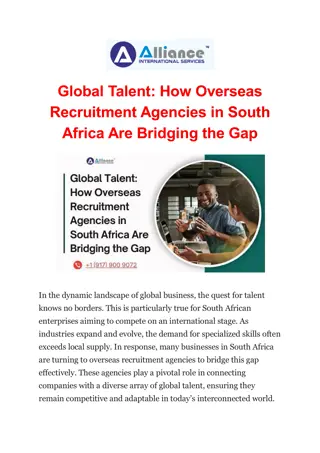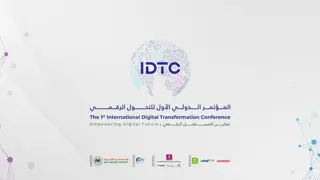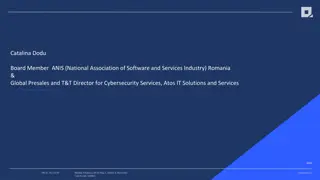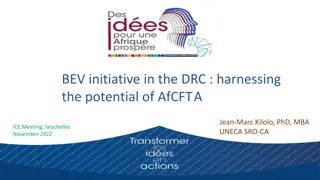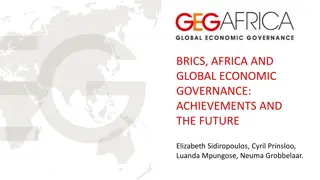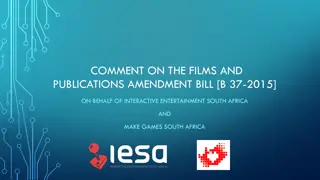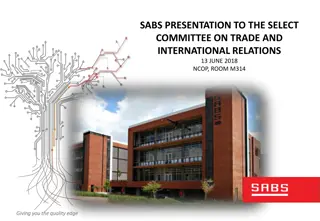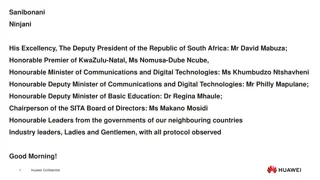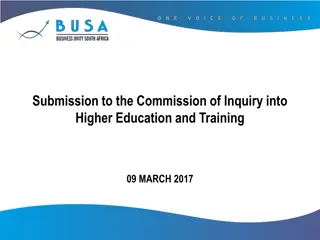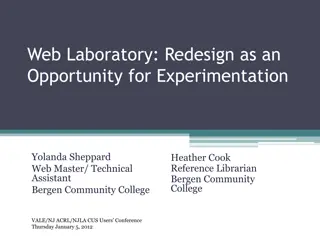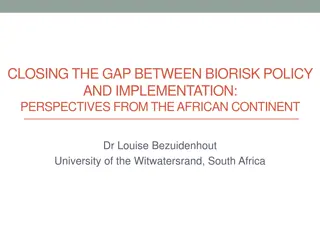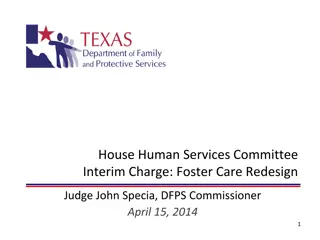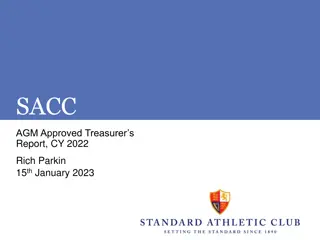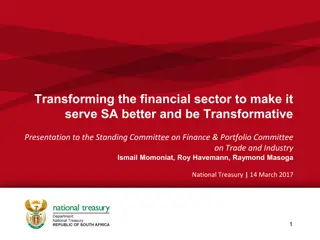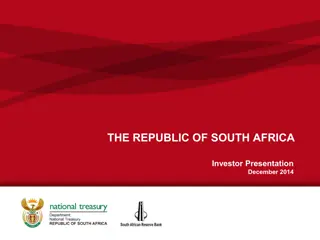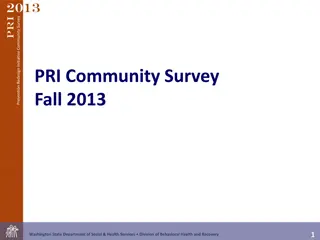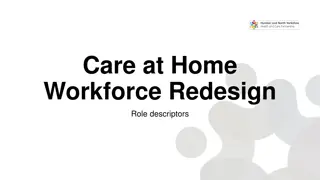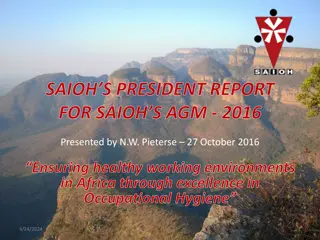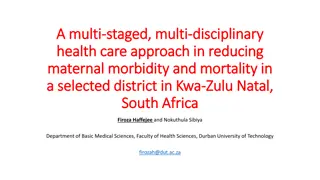SACC Economic Transformation Initiative: Reimagine, Redesign, and Reorganise for a Better South Africa
The South African Council of Churches is dedicated to creating a just, reconciled, peaceful, equitable, and sustainable South Africa. Through healing, education, democracy, and economic transformation, they aim to address past wounds and build a more inclusive society. The focus on economic transformation seeks to uplift the excluded majority, including women, youth, and marginalized communities, towards a more prosperous and just future.
Download Presentation

Please find below an Image/Link to download the presentation.
The content on the website is provided AS IS for your information and personal use only. It may not be sold, licensed, or shared on other websites without obtaining consent from the author.If you encounter any issues during the download, it is possible that the publisher has removed the file from their server.
You are allowed to download the files provided on this website for personal or commercial use, subject to the condition that they are used lawfully. All files are the property of their respective owners.
The content on the website is provided AS IS for your information and personal use only. It may not be sold, licensed, or shared on other websites without obtaining consent from the author.
E N D
Presentation Transcript
Picture 2 SPI Webinar, September 20, 2022 On SACC Economic Transformation Initiative Reimagine, Redesign and Reorganise The South African Experience of Life That they may have life abundantly! BISHOP MALUSI MPUMLWANA SACC GENERAL SECRETARY
Reimagine, Redesign and Reorganise The South African Experience of Life What the SACC Seeks to achieve in reimagining the South African life experience: The South African Council of Churches has committed itself to what we refer to as The South Africa We Pray For , which we consider to be the promise of the post apartheid South Africa of a just, reconciled, peaceful, equitable and sustainable South Africa; free of racism, ethnic tribalism, xenophobia and gender prejudices; free of corruption and deprivation; with food and shelter for all, and for every child born to grow to its God-given potential. To this end we promote action in four areas of our society: Healing and (for) Reconciliation: Healing the past, and engaging the societal woundedness and the challenge of gender, ethnicity and race Comprehensive Quality Education: For universal Access to high quality education for optimum enhancement of human potential from cradle to career and beyond, including preparation for informed and active citizenship. Anchoring Democracy: For an open, transparent, and accountable political dispensation with integrity, requiring electoral reform and systems to ensure civil service integrity. Economic Transformation: To deliberately and systematically enhance human dignity and the quality of life, not only by preserving the environmental sustainability of our planet, but also by enabling the participation in the productive economy, of poor citizens and the disadvantaged majority, with a process that progressively engenders wealth redistribution and wealth creation.
Economic Transformation Focus on Economic Transformation (That they may have life abundantly (John 10:10): SACC Economic Transformation is one of the four pillars of the Promise of the Post Apartheid South Africa. SACC asserts that meaningful economic transformation should lead to the fullness of the human life experience with access to economic opportunities, and equitable participation therein. The apartheid regime built the opposite of this - an economy based on racial exclusion, exploitation and the indignity of poverty. Therefore, for the majority of South African society, economic transformation is to move peacefully from the latter state of poverty and indignity to the fullness of economic means and livelihood. And creates the conditions for meaningful national reconciliation. Reconciliation devoid of socio-economic justice can only be but shallow, given the history of dispossession and material deprivation of the majority of South Africans. Lasting reconciliation requires redressing these historic injustices through inclusive and equitable economic development. Part of the historic injustices is the exclusion and economic exploitation of women; and economic transformation and inclusivity for growth must redress the economic deprivation of women.
The Challenge of the Excluded Majority The Excluded Majority: The excluded majority comprises women, young people, and blacks in general, especially the Coloureds and Africans ; and rural people, especially in the historical Bantustans and small dorpies of the hinterland with limited infrastructure, scanty economic livelihoods and poor social services. The Coloureds & Africans : Together approximating 90% of the population - They carry the huge burden of the social ills of poverty - the cheapness of life, exploitation, drugs, violent crime, poor infrastructure, hopelessness, social anger and violence. - They are also the political majority whose disaffection has the most prospect for an ugly eventuality if they remain a marginalised majority. - Their poverty is a national emergency - The July 2021 looting call demonstrated that. And those who designed the unrest knew that there is a ready population of hungry people who need no second call to loot. The Rural Bantustans & Hinterland Dorpies: - South African reality is that rural Africans are historically located in the 13% allocation of the 1936 Land Act, except those who can graduate themselves into better urban opportunities, or who simply flee rural poverty into urban squalor in the mass outmigration that occurs continuously. - The small towns that are almost ghost towns with sleepy economies are a sore point as their populations, especially the poor communities in the African and Coloured townships continue to plod under economic decline, swelling the statistics of the poor and marginalised communities.
The Case for Urgent Economic Transformation For Inclusivity in Growth Inclusive Growth: World Bank researchers Elena Ianchovichina and Susanna Lundstrom wrote: Inclusive growth refers both to the pace and pattern of growth, which are considered interlinked, and therefore in need to be addressed together Rapid and sustained poverty reduction requires inclusive growth that allows people to contribute to and benefit from economic growth (World Bank Policy Research Working Paper 4851, 2013) South Africa s Inequality: 90% of the country s asset value is in the hands of about 10% of mostly white male South Africans, according to the SAHRC Poverty: Some 99% of South Africa s poverty is between the Coloureds and Africans ; and between them they make up 90% of the voting population ( Coloureds are 8.8% and Africans are 80.7% of the total population.) These two race groups are the core of the excluded majority; historically excluded; and remain on the outside. The sheer numbers of the currently poor and disadvantaged majority demand their immediate and systemic inclusion in the economy, for they are numerically too many to discount. Their state of hopelessness is a national emergency!
Economic Transformation And Inclusivity for Growth Economic Transformation & Inclusive Growth: The August 2019 policy paper from the National Treasury on economic transformation and inclusive growth said: inclusive growth means that there be a rapid and fundamental change in the systems and patterns of ownership and control that govern the economy . Concurring with this understanding of inclusive growth, SACC believes that the objective of the church should be to promote a just and peaceful economic transformation, for a just, reconciled, equitable and sustainable society, with enough food and shelter for all, and for each child born to grow to its God given potential. These principles hold for the SACC in its approach on the economic agenda. The value statement of the SACC-led Civil Society Manifesto on Economic Transformation says: Economic transformation must deliberately and systematically enhance human dignity and the quality of life, by preserving not only the environmental sustainability of our planet, but also by enabling the participation in the productive economy, of poor citizens and the disadvantaged majority, with a process that progressively engenders wealth redistribution. This must involve the country s commercial and development finance institutions and include a focus on knowledge resources and physical resources such as the land, the oceans and mineral resources; manufacturing, commercial and business opportunities, to reverse poverty, inequality and low growth through inclusivity.
Quest for an Alternative Economic Architecture for Inclusivity The SACC Economic Transformation Process: The SACC Economic Transformation Working Group, chaired by Rev. Frank Chikane was established with about a dozen economists and activists who volunteered their expertise. Both SPI s Isobel Frye and Duma Gqubule played a key role in this process, and after various people shared their analysis and views, SPI was asked to prepare a continuum document that consolidates the inputs of the group. However, what Duma Gqubule and SPI did was way beyond the continuum document, and in fact prepared a substantive contribution to the debate, which has been presented today. For the working group the next steps are to factor the SPI contribution as it informs the sub- working groups that should follow largely delayed by lack of funding for this more focused sectoral group meetings. They will deal with how all this must address the following areas of concern: 1. Macro-economic Architecture for Inclusivity: I. Macroeconomic policy framework II. Financial services subgroup, including monetary policy the Reserve Bank. III. Regional (Southern Africa) Economic Integration
Drilling Down on Economic Transformation 2. Business of the State for the Inclusion of the Excluded Majority I. State-owned Enterprises II. Development Finance Institutions 3. Human Capital Inclusion of Excluded Majority (quality education for productivity) I. Universal access to ICT II. Reconfiguring Education Delivery III. Health Services for all IV. 4IR V. Artificial Intelligence 4. Regional Economic Integration: I. SADC is an AU economic region, yet there is has no visible regional economic agenda. II. RSA economy was developed on the backs of cheap labour from other countries. III. The future of the region is as intertwined as its past; IV. Explore prospects of each country bringing its assets to a commonwealth of SADC. 5. Marshall Plan to aggressively reverse poverty for specific categories through their inclusion I. Youth to accelerate marketable skills & absorb them into active productivity - can we prioritise unemployed youth of ages 15-24 (7.7 million) majority girls, for a rapid livelihoods programme. II. Women likewise III. Bantustan communities IV. Dorpies communities V. Historical urban townships VI. Dense informal settlements
Drilling Down on Economic Transformation 6. Land & Natural Resources I. Land, Property & Spatial Utilisation for Inclusivity II. Maritime Economy III. Environmental industries IV. Minerals Industries 7. Inclusion in Diverse Industries: I. Agricultural Economy II. Small scale, big impact manufacturing & services (Women, Youth, Bantustan rural, Dorpies) III. Construction & Infrastructure Development IV. Textiles V. Tourism VI. Sport & related industries 8. Provision of basic services: I. Water/roads/electricity/health/schools. The product of the sub-groups will be brought back to the core Working Group for a final document of recommendations. SACC will convene meetings with Theologians on Economic Justice to review the recommendations and develop a theological rationale for the alternative economic architecture. South African churches have congregations across borders, and consider regional economic integration as both a South African economic solution and a pastoral duty for their congregations.
Broadening the Scope of Economic Transformation On Regional Economic Integration: SADC is an AU economic region, yet there is no visible regional economic agenda emerging from the SADC political summits. Regional economic integration requires a different mindset and attitude to resources of nation states for the wellbeing of those excluded from economic opportunities. The SACC recognises that the South African economy was never developed by South Africans alone; but it was also built on the backs of cheap labour from SADC countries from Lesotho to Zambia, Tanzania, Malawi and Mozambique, creating perennial livelihood routes across the region. This is largely responsible for the economic migration that fuels anger of poor communities against foreign Africans in South Africa today. Yet exploring modalities for regional economic integration is urgent for the potential economic value for poor South Africans. Worth considering is the impact of realigning the regional relationships to optimise economic power and global comparative advantage; e.g.: the impact of treating our various national resources as a common pool RSA and Zimbabwe together hold about 90% of global platinum minerals. Angolan oil fields have an output of oil of about 1.3 million barrels of oil per day - said to be the second largest oil production in sub-Saharan Africa. Mozambique has an estimated 100 trillion cubic feet of gas fields (third largest in Africa after Nigeria and Algeria), now threatened by insurgency in Cabo Delgado, and with Rwanda first in rescue while SADC dithers, those gas resources will benefit Rwanda first. Gauteng s industrial hub depends on Lesotho s water.
Broadening the Scope of Economic Transformation And Mounting the Campaign What happens next after focused sectoral sub-groups: With limitless water from the world's deepest river, the Congo has hydro-electric supply potential of some 100,000 MW; and DRC is a country with untapped deposits of raw minerals that are estimated to be worth in excess of U.S. $24 trillion. These include gold, cobalt, high-grade copper reserves, coltan (key for mobile phones), diamonds, zinc, cassiterite (for tin and used in electronic products and mobile phones), and wolframite of tungsten and heating elements. We are already there, as the South African National Defence Force has been part of the UN peacekeeping force MONUSCO, at taxpayers cost for no economic returns. There are prospects for some mutuality of interests here. SACC will develop and implement a Communications Campaign for the Economic Transformation Agenda based on the outcome of this process. This agenda for economic transformation is one piece, but a critical for turning around the state of hopelessness that fuels anger, frustration and destruction, drugs, gender-based violence and other violent crimes. It is a significant factor in the quest for the Promise of the Post Apartheid South Africa in the South Africa we Pray For - a just, reconciled, peaceful, equitable and sustainable South Africa; free of racism, ethnic tribalism, xenophobia and gender prejudices; free of corruption and deprivation; with food and shelter for all, and for every child born to grow to its God-given potential.
Basket of Programme Offerings Work with local communities on: Poverty and Inequality Addressing immediate destitution Health and nutrition Economic Transformation Activating & Stimulating Local Economies Education: For Comprehensive Quality Education with Access to high quality education for the optimum enhancement of the human potential from cradle to career and beyond, including preparation for informed and active citizenship. With Primary Offerings in: ECD: to ensure the seven critical developmental domains: gross motor, fine motor, language, cognitive, social and emotional, self-help and adaptive, spiritual and moral. Youth Investment Programme: To support & ensure educational success, and enhance the well-rounded development of young people a comfortable sense of belonging, self-mastery, independence and generosity towards others in the spirit of ubuntu-botho. Education Community Support Movement



